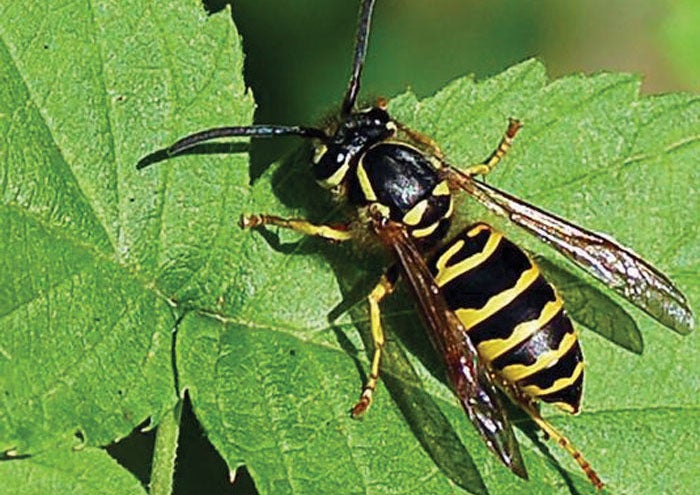Darrell Blackwelder: Yellow jackets can deliver extremely painful stings
Published 12:00 am Sunday, August 29, 2021

- Yellow jacket
I was pruning dead flowers in a container planting last week and was stung five times by yellow jackets. These insects are generally in the ground, but they can make nests above ground also in pots, woodpiles and other locations above ground. Hot weather we’re experiencing seems to make their presence even worse. Yellow jackets deliver extremely painful and sometimes deadly stings.
These creatures normally make their home in underground paper nests. The nests are abandoned each year in the fall. Yellow jackets are agitated by excessive noise and vibrations, so be aware when mowing or working outdoors.
A few yellow jackets survive the winter as mature fertilized queens. When the weather warms in the spring, the queen selects a nesting site and builds a single comb. Overwintering queens forage for food and feed the first larvae while newly hatched workers enlarge the nest and tend the young much as a colony of honeybees. Underground nests often develop into several layers of comb during the summer. The entrance to the underground nest is a single hole or cavity about the size of a quarter.
The best time to treat an underground nest is late evening or early morning when the yellow jackets are quiet in the nest. Wasp and hornet insecticides capable of delivering a straight stream work best in destroying the nest. Point the steady stream to the entrance hole and empty an entire canister of the insecticide deeply into the entrance hole. Sprays that contain ether are effective and quick. Do not use gasoline or other petroleum products as these are pollutants.
Cover the hole immediately to encapsulate the vapor, ensuring a complete kill. Yellow jackets should be dead within 24 hours after an application of the aerosol insecticide.
More detailed information about yellow jackets can be found at https://content.ces.ncsu.edu/yellowjacket-in-turf
Darrell Blackwelder is the retired horticulture agent and Director with the North Carolina Cooperative Extension Service in Rowan County. Contact him at deblackw@ncsu.edu.



